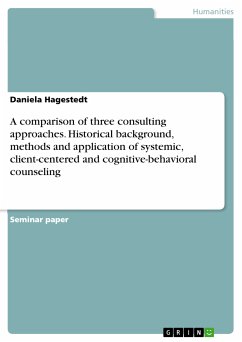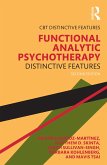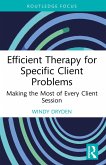Seminar paper from the year 2007 in the subject Psychology - Consulting, Therapy, grade: 1.0, University of Bremen, language: English, abstract: There is a multitude of psychological theories and approaches, from which various forms of counseling and therapy have developed over time, some of which are used more, some less in practice. All of these approaches have a common starting point: they want to help people alleviate or remedy existing problems. However, this is attempted in a wide variety of ways in both therapy and counseling. This paper considers three of these approaches in the field of counseling: systemic counseling, client-centered counseling, and behavioral or cognitive-behavioral counseling. It will be shown to what extent these approaches are similar and in which points they differ. In the first section, the most important historical developments of the three approaches will be briefly described, followed by a more detailed description and comparison of the theories underlying the concepts. Subsequently, it will be shown that the different theoretical foundations of the three approaches are also reflected in their application and their specific methods. In a final conclusion, the most important differences of the counseling approaches will be briefly presented again, and important areas of application in the educational field will be outlined.
Dieser Download kann aus rechtlichen Gründen nur mit Rechnungsadresse in A, B, BG, CY, CZ, D, DK, EW, E, FIN, F, GR, HR, H, IRL, I, LT, L, LR, M, NL, PL, P, R, S, SLO, SK ausgeliefert werden.
Hinweis: Dieser Artikel kann nur an eine deutsche Lieferadresse ausgeliefert werden.









